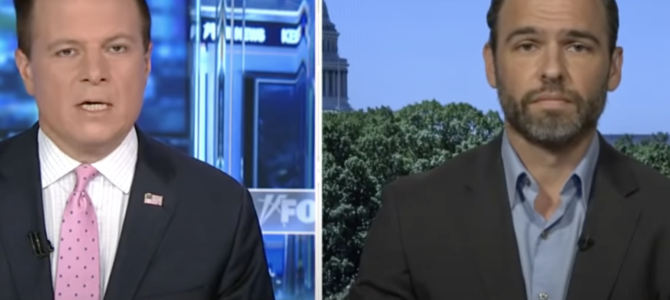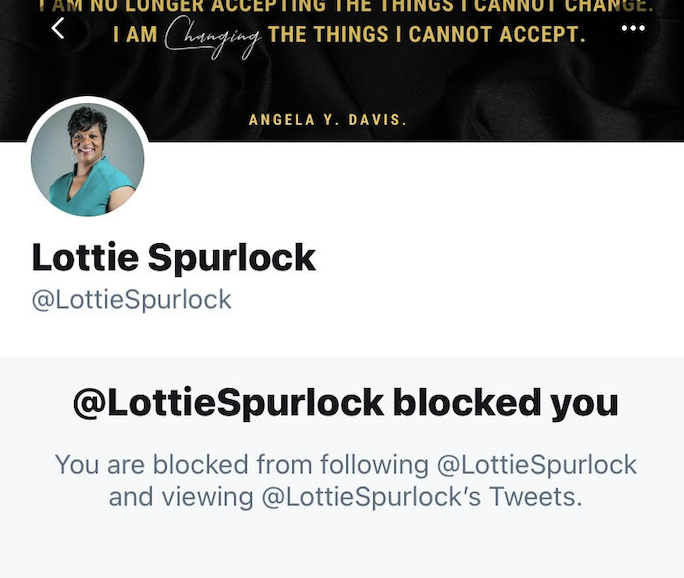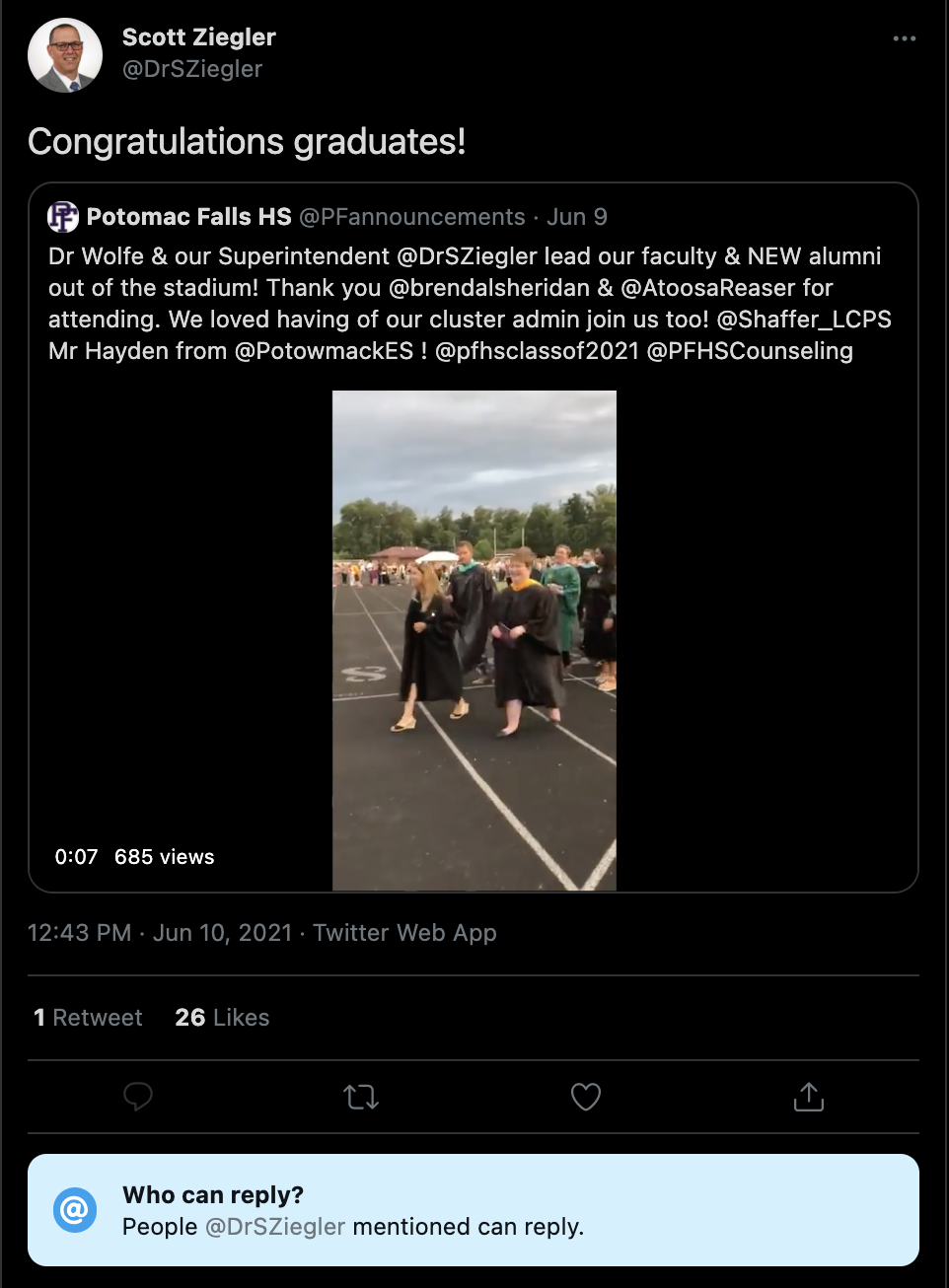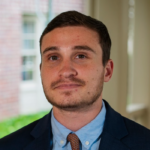
A prominent education activist residing in northern Virginia is blocked on Twitter by a public official, The Federalist has learned, and it may have First Amendment implications based on legal precedent.
Ian Prior, a former senior official in the Trump administration and executive director of Fight for Schools, is Twitter blocked by Lottie Spurlock, director of equity at Loudoun County Public Schools. Prior is at the forefront of the movement opposing critical race theory in Loudoun County and Spurlock is the force behind such efforts. Below is a screenshot Prior sent of the block.

An Equity Director Who Blocked The Opposition
Spurlock was appointed in July 2019 to her post. A month prior to her assuming the equity role, superintendent Eric Williams unveiled the district’s “systemic equity assessment” that would be facilitated through the “The Equity Collaborative,” a California consulting group that raked in $422,000 to perform an “equity assessment,” train educators, and perform focus groups. The assessment came on the heels of the Loudoun NAACP directing a complaint to the Virginia attorney general filled with allegations of systemic racism in the school system.
Prior became involved in the Loudoun County fight in August 2020. He is a parent who began to speak out at board meetings and researched the Equity Collaborative report and contract, as well as the proposed teacher code of conduct and student dress code. That October, he delivered a speech before the school board calling out the district for First Amendment infringement.
He also helped organize and speak at an anti-critical race theory rally in Loudoun County last weekend, as community members seek to recall board members who, as first reported by The Daily Wire, “compiled a lengthy list of parents suspected of disagreeing with school system actions, including its teaching of controversial racial concepts — with a stated purpose in part to ‘infiltrate,’ use ‘hackers’ to silence parents’ communications, and ‘expose these people publicly.'”
The former Department of Justice official is not aware of the exact date Spurlock blocked him on Twitter. However, based on two court rulings, the equity director may very well be infringing on Prior’s First Amendment rights.
When asked if she has ever interacted with Prior, Spurlock told The Federalist, “No, I have not.”
Judicial Precedent
Last year, a judge in the U.S. Court Of Appeals For The Fourth Circuit ruled that it was unconstitutional for the chairwoman of the Loudoun County Public Schools board of supervisors, Phyllis Randall, to block Brian Davison, a member of the community. Davison was negative on the district’s leadership and commented on Randall’s Facebook page. The activist sued in court and won.
The second notable case, which is similar to Prior’s situation, involved then-President Donald Trump. Judges in the 2nd Circuit Court of Appeals ruled unanimously that Trump is barred from blocking people on Twitter due to “unconstitutional viewpoint discrimination.”
Giancarlo Canaparo, legal fellow at The Heritage Foundation, told The Federalist that while “there is no academic or judicial consensus on whether public officials violate the First Amendment by blocking users on their social media accounts,” the two rulings made clear that there are two criteria for when blocking would be violating the First Amendment.
“Both courts held that when public officials use their social media accounts for official business those accounts become ‘public forums’ where the government cannot engage in viewpoint discrimination,” Canaparo said. “Within these circuits, whether an official violates the First Amendment when blocking someone from engaging with his or her social media profile hinges on two questions: (1) whether the account is used (in the Second Circuit’s language) ‘as a channel for communicating and interacting with the public about his[/her] administration’ and (2) whether the official blocked a person because of the content of their views.
“If both questions are answered in the affirmative, then in these Circuits, a government official has violated the First Amendment rights of the people they block,” Canaparo added.
Prior’s situation may align with these two cases. Spurlock is a public official and her social media is used to communicate various information about Loudoun County Public Schools. The second question would hinge on if Prior was definitely blocked for his “views,” which would be a coincidence if this was not the case given his role in opposing the school board.
Ilya Shapiro, vice president of the Cato Institute and a candidate for the Falls Church City School Board in Virginia, told The Federalist, “I tend to agree” with the two rulings “because official accounts are what lawyers call ‘public forums,’ where government officials can’t stop people from making their views heard (with exceptions for harassment, belligerence, and the like).”
While legal scholars expressed First Amendment concerns based on court rulings, Clare Morell, a policy analyst at the Ethics and Public Policy Center working on the Big Tech Project, said, “Everyone certainly has the right to free speech on their platforms but I am not sure this means they have the right to speak at others who don’t wish to be spoken to by them.”
“I think we have personal freedoms to choose who we speak to,” Morell said. “But I am far more concerned about the platforms themselves shutting down people’s accounts or deleting their tweets and posts.”
A Superintendent Shielding Himself From Opinions
Not only is Prior blocked by Spurlock, but he also shared he is still blocked by Nyah D. Hamlett, former chief of staff for Loudoun County Public Schools. Hamlett took a position at a school in Chapel Hill, North Carolina in January, so of course, does not still operate as a “public official” for Prior.
However, there is a similar situation to Spurlock’s in Loudoun County with the district’s superintendent. While Scott A. Ziegler has not specifically blocked Prior, he has seemingly blocked all users. Ziegler’s account restricts people from interacting with posts that are not mentioned by him.

The Twitter moderation feature was announced in February 2019 and implemented in May 2020. It was developed as a test, and a spokesperson said last year “we’ll be listening to feedback before determining” if the feature will remain in place. Evidently, it still is.
When asked about whether Ziegler’s restriction likewise may violate the First Amendment, Canaparo said, “It’s a slightly harder question.”
“What it turns on again is, if he’s doing that because he doesn’t want to hear from people who disagree with him, then you’re still in the First Amendment problem land,” he said. “If we were operating under the Second and Fourth Circuit’s decision, that’s probably a First Amendment violation.”
Ziegler did not return a request for comment.
Prior said these examples of censorship speak to “the entire modus operandi of Loudoun County Public Schools where they refuse to have a debate about these issues.”
This sentiment was affirmed at the anti-critical race theory rally, in which protestors expressed discontent with how the county does not host town hall meetings.
“And I think what we’ve seen from Loudoun County Public Schools is a pattern of practice of hostile actions to the First Amendment rights of parents,” Prior added.








